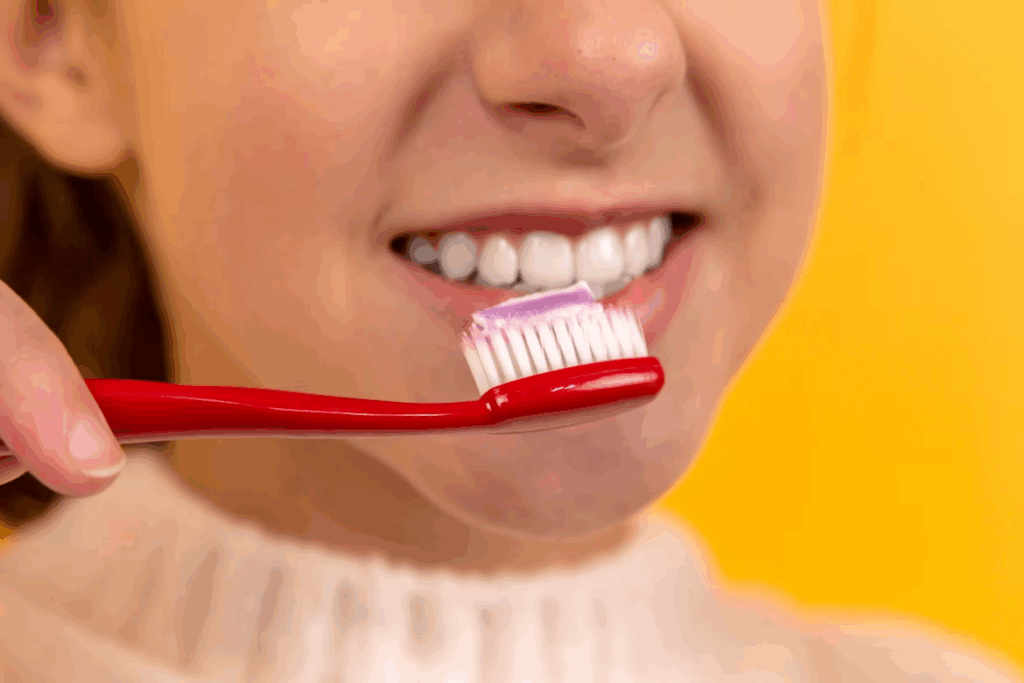
Dirty teeth do affect your health beyond just causing bad breath or an unattractive smile. Bacteria and infections in your mouth can enter your bloodstream, potentially leading to serious conditions like heart disease, diabetes, and respiratory problems. Maintaining clean teeth and gums is crucial because poor oral hygiene can have consequences that impact your entire body.
You might overlook oral care as a simple routine, but the state of your teeth and gums reveals much about your overall health. Ignoring dental hygiene can increase your risk of infections and inflammation that contribute to chronic diseases leading to dental implants, and other oral health issues.. Understanding this connection gives you a clearer reason to prioritize your dental care.
Taking care of your teeth is more than cosmetic; it’s a key component of protecting your general wellbeing. This article will guide you through how dirty teeth influence health and what steps you can take to minimize those risks.
How Dirty Teeth Impact Oral and Systemic Health
Dirty teeth contribute to a buildup of harmful bacteria and inflammation that can cause multiple dental problems. If untreated, this escalates from simple cavities to serious gum disease, impacting not just your mouth but your overall health.
Bacterial Plaque and Inflammation
Plaque is a sticky film of oral bacteria that constantly forms on your teeth. When you neglect oral hygiene, plaque hardens into tartar, which firmly adheres to teeth and can only be removed professionally.
These bacteria produce toxins that irritate your gums, triggering inflammation known as gingivitis. Early signs include redness, swelling, and bleeding gums. Left unchecked, this inflammation becomes chronic and worsens, making your oral cavity more vulnerable to infection.
Inflammation caused by plaque is not limited to your mouth. It can contribute to systemic inflammation, potentially weakening your immune system and increasing risks of other health conditions.
Development of Cavities and Tooth Decay
Poor oral hygiene allows plaque bacteria to thrive and produce acids. These acids attack your tooth enamel, breaking it down and creating cavities (holes in the teeth).
Cavities often start small but progressively deepen if untreated, leading to tooth decay. Decay damages the tooth structure and can cause pain, sensitivity, and difficulty chewing. It also provides entry points for infections, which may spread to the deeper tooth layers.
Routine brushing and flossing are essential to remove plaque and prevent acid buildup. Regular dental care helps detect and treat cavities before they cause serious damage.

Progression to Gum Disease and Periodontitis
If gingivitis persists, it can develop into periodontitis, a severe gum disease that affects the bone supporting your teeth. Periodontitis leads to gum recession, pocket formation between teeth and gums, and ultimately, tooth loss.
This advanced condition is linked with systemic diseases including heart disease, diabetes, and dementia. The oral bacteria and inflammation may enter your bloodstream, potentially influencing these chronic conditions.
Effective oral care, including professional cleanings, is crucial to control periodontitis. Neglecting it can severely impair your oral health and increase your risk for systemic health problems.
The Far-Reaching Health Consequences of Dirty Teeth
Dirty teeth and poor oral hygiene can trigger inflammation that affects your entire body. This inflammation links to various diseases impacting your heart, lungs, blood vessels, and blood sugar regulation.
Cardiovascular Disease and Heart Attacks
When plaque builds up on your teeth and gums, it causes chronic inflammation. This condition can increase the risk of atherosclerosis, where the arteries harden and narrow due to fatty deposits. These deposits can lead to heart disease and significantly increase the chance of heart attacks.
Bacteria from your mouth can enter the bloodstream, causing endocarditis—an infection of the inner lining of your heart. This condition is serious and may require immediate medical attention. Keeping your teeth clean helps reduce the bacteria that contribute to these cardiovascular problems.
Stroke and Vascular Issues
The inflammation caused by dirty teeth also affects your blood vessels, raising the risk of stroke. Chronic gum disease promotes the buildup of arterial plaques that can obstruct blood flow to your brain.
Poor oral hygiene contributes to systemic inflammation, which worsens vascular issues by damaging blood vessel walls. This damage increases the risk of both ischemic strokes (caused by blockages) and hemorrhagic strokes (caused by blood vessel rupture).
Respiratory Infections and Lung Disease
Bacteria from dirty teeth and infected gums can be inhaled into your lungs, leading to aspiration pneumonia and other respiratory infections. This process is particularly dangerous for people with weakened immune systems or preexisting lung conditions like COPD or bronchitis.
Poor oral health is linked to worsening pulmonary disease and frequent respiratory infections. Regular dental care reduces the number of harmful bacteria in your mouth, lowering the risk of these serious lung conditions.
Diabetes Control and Complications
Dirty teeth and gum disease make it more difficult to control blood sugar levels. The inflammation from oral infections impairs your body’s ability to manage insulin effectively, leading to higher blood sugar spikes.
This worsens diabetes complications, including neuropathy, kidney failure, and poor wound healing. Maintaining good oral hygiene supports better diabetes management by reducing systemic inflammation and improving your overall health outcomes.
Dirty Teeth and Other Systemic Health Risks
Poor oral hygiene does more than cause cavities and gum problems. It can significantly impact various organs and systems in your body, increasing risks for serious conditions related to pregnancy, brain function, immunity, and even cancer.
Risks Related to Pregnancy and Fertility
If you are pregnant or planning pregnancy, maintaining good oral health is crucial. Poor dental hygiene and gum disease can increase risks of premature birth, low birth weight, and preeclampsia. The inflammation caused by bacteria like Porphyromonas gingivalis may enter your bloodstream and affect the placenta, potentially compromising fetal development.
Oral health also influences fertility. Studies link gum disease to infertility issues and complications with conception. Some evidence suggests men with untreated oral infections face higher chances of erectile dysfunction. Addressing your oral health can help reduce these risks and support reproductive wellness.
Brain Health: Dementia and Alzheimer’s Disease
Your oral bacteria may affect brain function more than you expect. Certain bacteria involved in periodontal disease, especially Porphyromonas gingivalis, have been found in the brains of people with Alzheimer’s disease.
These bacteria produce toxins that may lead to inflammation and neurodegeneration, contributing to memory loss and dementia. Maintaining your oral hygiene can help minimize bacterial migration and chronic inflammation, potentially protecting your cognitive health.
Kidney Disease and Autoimmune Disorders
Chronic oral infections increase systemic inflammation, which can negatively affect your kidneys and immune system. People with poor oral hygiene are at a higher risk of kidney disease progression due to bacteria entering the bloodstream.
You are also more vulnerable to autoimmune conditions like rheumatoid arthritis. Ongoing gum inflammation can trigger immune responses that worsen joint issues and promote bone loss. Taking care of your oral health helps reduce this inflammatory burden on your body.
Cancer and Chronic Illnesses
Persistent gum disease and oral inflammation raise your risk for several cancers beyond the mouth. Studies link poor oral hygiene with higher incidence of oral cancer, as well as blood cancers, pancreatic cancer, and colorectal cancer.
Bacterial toxins and chronic inflammation create an environment that promotes cellular damage and cancerous changes in tissues. Addressing dental plaque and infections plays a role in lowering these risks and improving your overall long-term health.
Maintaining Clean Teeth for Better Health
Taking consistent steps to care for your teeth directly affects your overall health and well-being. Proper hygiene habits and timely professional dental care prevent many serious conditions and also influence how you feel about yourself and how others perceive you.
Preventive Dental Care and Hygiene Strategies
You should brush your teeth at least twice a day using a fluoride toothpaste and a soft-bristled brush to avoid gum damage. Cleaning between teeth daily with floss, interdental brushes, or water flossers removes plaque where a toothbrush cannot reach. Mouthwash can be used as a supplement, not a replacement, especially if it contains fluoride or anti-inflammatory agents.
Avoiding smoking and chewing tobacco is crucial since these habits accelerate decay and gum disease. Replace your toothbrush every three months, or sooner if bristles wear out. This maintains cleaning effectiveness and helps prevent damage to your gums.
Regular Dental Checkups and Screenings
Scheduling dental checkups every six months is important even if you feel no discomfort. Professional cleaning removes tartar that brushing can’t, reducing the risk of gum disease and cavities. During these visits, your dentist can detect problems early, such as oral cancer or hidden decay, which might not be noticeable on your own.
These screenings are especially important if you have risk factors like smoking, diabetes, or a history of gum disease. Regular care lowers the chance that minor issues turn into expensive or painful procedures.
Impact of Poor Dental Health on Self-Esteem and Social Life
Poor dental hygiene can lead to bad breath, discoloration, and visibly rotten teeth, all of which can negatively affect your self-esteem. You may feel embarrassed to smile or speak in social situations, which can reduce your confidence and willingness to interact.
Maintaining good oral health helps you present yourself confidently and promotes positive social interactions. Healthy teeth contribute not only to your physical health but also to your psychological well-being and how others perceive your hygiene and care.
Frequently Asked Questions
Poor dental hygiene is linked to various health problems affecting multiple organs. Neglecting your oral care can influence conditions like heart disease, diabetes, and even pregnancy outcomes. Maintaining good habits and seeking timely dental care are essential for reducing health risks.
What health problems are linked to poor dental hygiene?
Poor oral hygiene can increase your risk of cardiovascular disease, diabetes complications, respiratory infections, and some cancers. Gum disease may also contribute to osteoporosis, kidney disease, and rheumatoid arthritis.
How can neglected oral care impact overall well-being?
Neglecting oral care can lead to persistent inflammation and infections that travel through your bloodstream. These infections may worsen blood sugar control, affect pregnancy outcomes, and impair your immune system’s ability to fight illnesses.
What are effective strategies to maintain dental health?
Brush at least twice daily with fluoride toothpaste and floss daily. Regular dental checkups and professional cleanings help prevent plaque buildup and gum disease. Avoid tobacco use, maintain a healthy diet, and manage chronic conditions like diabetes.
Is there a connection between oral health and systemic diseases?
Yes. Oral bacteria and inflammation have been linked to systemic diseases including heart disease, Alzheimer’s, diabetes, and respiratory illnesses. Your mouth can serve as a gateway for harmful bacteria to enter the bloodstream, affecting your entire body.
At what point should one seek professional oral health assessment?
See a dentist if you notice bleeding gums, persistent bad breath, loose teeth, or pain. Regular exams every six months are recommended to catch issues early and reduce risk of systemic complications.
Are there any brain health risks associated with dental neglect?
Poor oral health can increase the risk of Alzheimer’s disease and dementia. Oral bacteria may travel to the brain and contribute to inflammation and cell damage that impact memory and cognitive function.
Bob Duncan is the lead writer and partner on ConversationsWithBianca.com. A passionate parent, he’s always excited to dive into the conversation about anything from parenting, food & drink, travel, to gifts & more!

